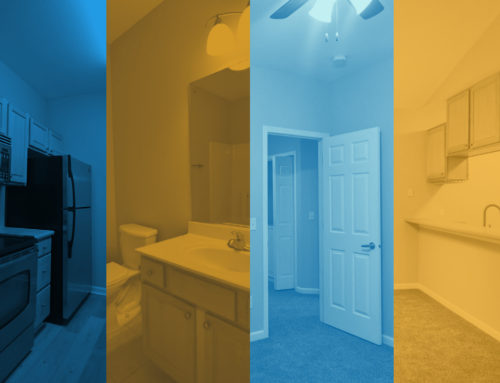
The pros and cons of a counter offer: Negotiating in real estate
Whether you’re buying or selling a home, you might have to negotiate a counter offer. Counter offers have their pros and cons. Though they can help you get a better deal, when taken too far they can kill a deal altogether.
What is a counter offer?
Whether you’re buying or selling a house, you need to know about counteroffers. When a buyer makes an offer on a home, the seller can make a counteroffer. The counteroffer makes changes to the original offer. In other words, a counter offer in real estate is a negotiating tactic in response to the initial offer.
When a counter offer is made, the original offer is then void.
If a seller wants to make changes to an offer they received from a buyer, the counter offer typically changes:
1) the sale price,
2) the timeline (for financing and/or the closing date),
3) inspection requirements, and/or
4) the “conditional” agreements within the offer. (For example, the seller making a repair before closing, or the offer being contingent on the buyer selling their current home.)
The seller’s counter offer is then presented to the buyer. The buyer can choose to:
1) accept it
2) decline it
3) counter it.
There is a time limit for how long the seller or buyer has to sign, decline, or counter the counteroffer (usually 24 hours).
Theoretically, the buyer and seller can go back and forth with counter offers until they reach an agreement. When the buyer and seller both sign the offer, it becomes a legally binding purchase agreement.
Negotiating a cash offer on a home
To counter offer or not? That is the question
Some buyers and sellers might be hesitant to make a counteroffer because they’re afraid to lose out on the sale or purchase of the home. Others might be eager to counteroffer to get a better price, timeline, or other terms.
Most of the time, a counter offer is acceptable. But be careful how far you take the negotiations.
And know your local real estate market. If you are in a real estate market that is competitive, a counteroffer might be a poor strategy. In a competitive market, when you counteroffer you risk losing out on a deal.
For instance, if it’s a buyer’s market, a seller should be cautious with counteroffers. A buyer’s market is when there are plenty of houses for sale. And the homes for sale aren’t selling that fast either. In a buyer’s market, a seller may not want to counteroffer an initial offer too aggressively, or the buyer can easily move on to the next property.
On the flip side, if it’s a seller’s market, the buyer should be very cautious with making counteroffers. A seller’s market is when the number of homes for sale in the area doesn’t meet the demand for the number of buyers. Prices often get pushed up and multiple offers are common. In this type of market, a buyer might think twice before counter-offering on a seller’s (reasonable) counteroffer.
No matter what the market, you can push negotiations too far. If the buyer or seller gets greedy and continues to be aggressive in their negotiating tactics, the other party is more likely to walk away from the deal.
Yes, buying and selling a house involves negotiating. But it also affects people’s emotions, like it or not. When the buyer or seller believes the counter offer is excessive or unreasonable, they can easily get frustrated and offended. And they’ll walk away and never look back.
When making a counteroffer, you might think, “The worst that can happen is they say ‘no.’” But actually, the worst that can happen is they walk away from the deal altogether – never to return. It could mean a lost sale.
Pros of counter offer
- You might be able to get a better price with a counter offer – if it’s accepted
- You might get a timeline that works better for you – if it’s accepted
- If new information about the home comes up, or the terms of the agreement are not met, a subsequent counteroffer can be a way to still make the deal work
Cons of counter offer
- You might lose the sale or purchase of the home
- You might end up with a counteroffer on your counteroffer with even worse terms than before
- As a buyer, the seller could get another (better) offer during the time they have to consider your counteroffer
Understand the counter offer
Review every part of a counteroffer and make sure you understand every detail. Your real estate agent can help guide you through the process. A good agent will help you understand the specifics of the offer and help you make any negotiations.
Never sign a counteroffer unless you understand it and are 100% comfortable with the sale price and other terms.
Counteroffers can occur between the initial purchase agreement and the closing date
When the buyer and seller both sign the offer, they make a legal agreement to follow through on the terms of the contract. In the time between when the offer (or counteroffer) is signed by both parties and the time of the closing, a lot can happen.
Subsequent counteroffers can occur before closing. They often happen when new information is discovered through inspections, if the appraisal is too low, or the terms of the purchase agreement aren’t met.
Both the buyer and the seller have to follow through on the terms of the contract. For example, the buyer has to secure financing. And the seller has to allow any inspections and complete any repairs stated in the agreement.
If the inspections reveal issues with the house that the buyer was unaware of when they signed the purchase agreement, they have the option to walk away from the deal or make a counteroffer to ask the seller to compensate for the newly discovered issues.
The same goes for the seller. If the buyer isn’t able to get financing within the timeline stated in the contract, the seller can walk away.
To sum it up, a counter offer can be a useful tool in negotiating. But it’s wise to use it with caution in certain circumstances. Know your local real estate market conditions. And consult your real estate agent to negotiate the best deal for you.





